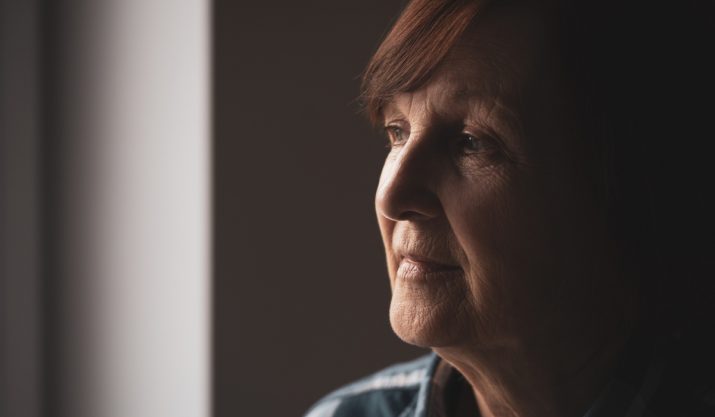Knowing the Signs: Identifying Dementia Early

Table of Contents
Are you worried about a loved one because you’ve noticed changes in their behavior or personality? Many people are concerned when they see signs of dementia in elderly family members, friends, or themselves. Dementia is a severe condition affecting 55 million people worldwide. Early recognition of the signs and symptoms is essential to getting the help needed.
In this blog post, you’ll learn some of the common indicators of dementia so you can take the necessary steps to get a diagnosis and proper treatment.
Key Takeaways
- Pay attention to any changes you notice in a loved one’s behavior or personality, as this could be a sign of dementia.
- Get a doctor’s opinion if you suspect someone may have symptoms of dementia.
- Early diagnosis and treatment for dementia can significantly affect how well the person manages their condition and overall well-being.
Early Behaviors and Signs of Dementia
To help you recognize common dementia behaviors, we’ve outlined the most critical signs for caregivers to look for.
Difficulty Planning or Organizing
Have you noticed someone having difficulty planning, organizing activities, and solving problems? Dementia can make it tricky for the person to carry out tasks that require multiple steps like following a recipe or paying bills. In fact, some may experience “sundowning,” which is when they become disoriented or confused in the evening and night. This is one of many signs of dementia and could be related to Alzheimer’s disease or vascular dementia.
Changes in Judgement or Poor-Decision Making
Another sign of dementia is when a loved one makes poor decisions regularly. This could mean making decisions that put them in danger, such as going out alone at night or giving away money to strangers.
They may also neglect personal hygiene and struggle with simple decision-making tasks like what to wear or eat. This problem is common in diseases like Lewy body dementia and frontotemporal dementia.
Difficulty With Familiar Tasks
If you notice that you or a loved one is having trouble performing tasks that used to be second nature, such as driving or getting dressed, this could indicate dementia. It’s essential to pay attention to changes in daily routine and look for patterns in behavioral symptoms, as they could signify Alzheimer’s or other conditions.
Changes in Personality or Behavior
Another common sign is personality or behavioral changes. This could be anything from becoming withdrawn and isolated to having rapid mood swings and exhibiting aggressive behavior. It’s scary to witness sudden personality changes, but staying calm and noticing any patterns you see are essential. You’ll see this in diseases such as frontotemporal dementia, which is often accompanied by changes in personality, behavior, and language.
Loss of Initiative
If the person you know has always been active and energetic but now seems to lack drive or initiative, check for dementia. It’s essential to pay attention to how the person interacts with their environment and whether they seem interested in things that used to bring them joy. If they suddenly seem apathetic, bored, or low energy for no reason, dementia may be the cause.
Difficulty With Language
Speaking difficulties could range from simple things such as being unable to find the right word, forgetting names, or having confusing conversations. You’ll want to pay close attention if you notice someone having trouble expressing themselves or understanding what others are saying. If their mannerisms seem off and you note changes in their conversations, it could be caused by dementia.
Disorientation
Finally, if the person you know is having trouble with their memory or becoming disoriented, you should observe more closely. They may forget things they used to know or get lost in familiar places. Take note of how often this occurs and if their memory seems to be getting worse over time. If you notice these signs, it’s vital to get a doctor’s opinion as soon as possible.
Identifying Dementia
The importance of seeking professional evaluation to diagnose dementia cannot be overstated. Early diagnosis of dementia is critical for effective management and treatment, as well as for helping to plan for the future. If you suspect someone you know is exhibiting any of these signs, seek medical advice from a physician before it progresses.
Doctors use tests and assessments to find out if someone has dementia. These can be neuropsychological tests, which look at the brain, or cognitive tests that check how well a person can think and remember.
Be aware that signs of dementia can often be attributed to other conditions such as depression, medication side effects, or other medical conditions. Consider these possibilities before assuming that a person is exhibiting signs of dementia.
Talk to the person and ask questions about their feelings and any changes they have noticed in their behavior or thinking. It’s also important to talk to the person’s family, friends, or caregivers, as they may have seen changes that you haven’t.
Once you have ruled out any other possible causes, it’s time to consult a doctor. Early diagnosis and treatment can significantly help dementia patients through proper health care. If you can catch the early stages of dementia, you can help the person take steps to manage symptoms and improve their quality of life.








